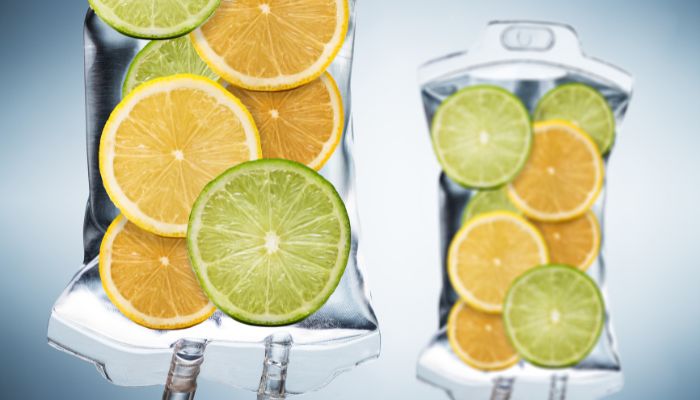
You’ve probably heard the buzz about IV vitamin therapy. Celebrities rave about it, wellness enthusiasts swear by it, and even your coworker might have tried it after a rough weekend. But what exactly is this therapy, and more importantly, does it actually work? Before we jump on the IV drip bandwagon, let’s dig into the facts.
What is IV Vitamin Therapy?
First things first: what is IV vitamin therapy? In simple terms, it’s a method where vitamins and minerals are administered directly into your bloodstream through an intravenous (IV) drip. The idea is that by bypassing the digestive system, these nutrients are absorbed faster and more efficiently by the body.
Unlike oral supplements, which must go through the stomach and intestines before being absorbed, IV therapy delivers nutrients straight to your veins, ensuring a nearly 100% absorption rate. It’s essentially the fast lane to delivering vitamins where they’re needed most.
The Hype Around IV Vitamin Therapy
The therapy became popular in health and wellness circles, with claims that it can do everything from boosting energy to improving skin health, enhancing immunity, and even curing hangovers. Many wellness clinics and spas now offer these treatments as part of their services, with custom cocktails of vitamins tailored to different needs — think vitamin C for immunity, B12 for energy, and glutathione for anti-aging effects.
But is all this hype justified? Can a vitamin cocktail administered intravenously really do what it promises?
The Science Behind IV Vitamin Therapy
Let’s look at the science. On the surface, IV vitamin therapy seems like a no-brainer. After all, if you’re feeling run down, why wouldn’t a direct infusion of vitamins perk you up? While there’s some truth to this logic, the science isn’t as clear-cut.
Many studies surrounding IV therapy are limited and often focus on specific medical conditions like nutrient deficiencies or cancer treatments. For example, in certain cases — such as severe dehydration, nutrient malabsorption (like in Crohn’s disease), or chemotherapy side effects — IV vitamin therapy may indeed be beneficial.
However, for the average, healthy person, the benefits of IV vitamin therapy are less certain. According to some experts, unless you’re severely deficient in a specific nutrient, your body is likely getting what it needs from a balanced diet. So, the question becomes: are you just paying for expensive pee? That’s because any excess vitamins that your body doesn’t need will be filtered out by your kidneys and excreted.
Common Claims: Separating Fact from Fiction
Let’s break down some of the most common claims surrounding IV vitamin therapy and see if they hold up.
Boosting Energy Levels
One of the major selling points of IV therapy is that it can give you an immediate energy boost. While it’s true that certain vitamins, like B12 and magnesium, play a role in energy production, most healthy individuals get enough of these nutrients through diet. If you’re chronically fatigued, it’s worth checking with your doctor to rule out underlying conditions like anemia or thyroid issues, rather than relying on an IV drip.
Improving Immunity
IV therapy clinics often promote vitamin C drips to strengthen your immune system, especially during cold and flu season. While vitamin C is important for immune function, there’s no strong evidence to support the idea that mega-dosing on it via IV will prevent illnesses. In fact, your body can only absorb so much vitamin C, and the rest is typically flushed out. Regular dietary intake, including vitamin-rich foods like oranges or spinach, is still your best bet for a strong immune system.
Hangover Cure
Ah, the classic hangover cure. After a night of too many cocktails, some swear that an IV drip can bring them back to life. The theory is that a combination of fluids, electrolytes, and vitamins can help rehydrate and replenish what was lost. While the hydration aspect may help alleviate symptoms of dehydration, the vitamin infusion probably isn’t doing much beyond what a couple of glasses of water and rest could achieve. Some swear by it, but is it worth the steep price tag?
Better Skin and Anti-Aging
Vitamin infusions containing glutathione and vitamin C are marketed for their supposed anti-aging and skin-brightening benefits. While both of these nutrients are indeed powerful antioxidants, there’s no substantial evidence that getting them through an IV drip will slow down the aging process or give you a glowing complexion overnight. Proper skin care, hydration, and a healthy diet are still the foundations for better skin.
Are There Any Risks?
It’s important to note that IV therapy isn’t without risks. Any time you’re inserting a needle into your vein, there’s a chance of infection, bruising, or more serious complications like blood clots. Additionally, overdosing on certain vitamins, particularly the fat-soluble ones (A, D, E, K), can be dangerous since your body stores these rather than flushing them out. So, while most clinics claim IV vitamin therapy is safe, it’s not entirely risk-free.
Does IV Vitamin Therapy Work?
So, does IV vitamin therapy work? Well, it depends. If you have a legitimate medical condition or are severely nutrient deficient, then yes, IV therapy could provide real benefits under the guidance of a healthcare professional. However, for the average person, the evidence is lacking, and you may be better off focusing on a balanced diet, proper hydration, and good old-fashioned sleep.
At the end of the day, IV vitamin therapy might make you feel temporarily better — and the placebo effect is a powerful thing — but it’s not a miracle cure. If you’re considering trying it, be sure to consult with a healthcare provider, especially if you have any underlying health conditions. And remember, health fads come and go, but taking care of your body in more traditional, tried-and-true ways (think: eating well, exercising, and sleeping enough) never goes out of style.





